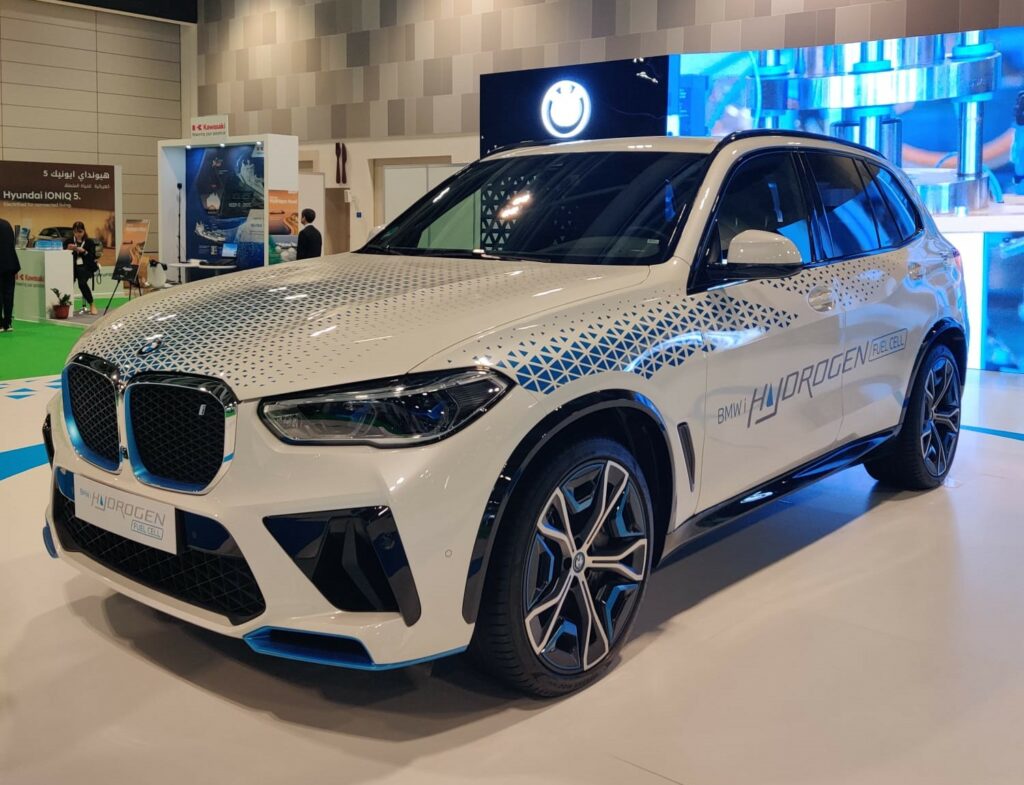BMW is making waves with its iX5 Hydrogen, a groundbreaking prototype designed to showcase the potential of hydrogen as a viable alternative in the pursuit of climate-neutral transportation.
While electric vehicles often face skepticism from critics, the iX5 Hydrogen is generating optimism, with BMW CEO Oliver Zipse, Bavarian Deputy Prime Minister Hubert Aiwanger, and everyday drivers expressing confidence in the future of hydrogen-powered cars.
For those skeptical of the transition to battery-powered electric cars, hydrogen emerges as a promising solution that allows certain aspects of our driving experience to remain unchanged. Hydrogen vehicles offer rapid refueling, long-range capabilities suitable for extended journeys, and resilience to cold weather – aspects that resonate with both drivers and industry leaders.
BMW’s venture into hydrogen is not new. The company built its first hydrogen car, the BMW Hydrogen 7, in 2007 but later moved away from the technology. Today, BMW, in collaboration with partners like Toyota and competitors like Hyundai, focuses on fuel cell technology to harness energy from oxygen and hydrogen.
The result is the iX5 Hydrogen, positioned as a “feasibility study” to demonstrate the viability of hydrogen-powered vehicles in daily life. While the prototype will be produced in limited quantities, the intention is clear: to prove that hydrogen can be a practical and efficient choice for everyday use.
The iX5 Hydrogen stores hydrogen in two carbon tanks, strategically placed in the transmission tunnel and under the rear seats. With a total capacity of six kilos, BMW promises a range of over 500 kilometers – putting it in line with comparable battery-powered electric cars.
The fuel cells, sourced from partner Toyota and further refined by BMW, are located under the hood and deliver up to 125 kW (170 hp). While this output might seem modest by BMW standards, a supplementary battery in the rear trunk, storing 2.3 kilowatt-hours of energy, boosts the system’s output to 295 kW (401 hp) when additional power is needed.
One of the initial test drivers of the iX5 Hydrogen is Bavarian Deputy Prime Minister Hubert Aiwanger, who opted for the model as his company car. The driving experience, as reported by test drivers, aligns with BMW’s reputation for dynamic and comfortable rides. The hydrogen-powered SUV exhibits powerful and silent acceleration, akin to an electric car. The vehicle’s weight, at 2.5 tons, is well-managed, providing a stable and smooth ride. Notably, the interior is exceptionally quiet, contributing to a serene driving experience.
In the evolving landscape of sustainable transportation, BMW’s iX5 Hydrogen represents a pivotal step towards diversifying fuel sources for vehicles. As the automotive industry navigates the complexities of a climate-neutral future, the iX5 Hydrogen serves as both a technological marvel and a tangible glimpse into the potential of hydrogen-powered driving. With the road to greener options expanding, BMW’s venture into hydrogen technology marks a promising chapter in the quest for eco-friendly mobility.
